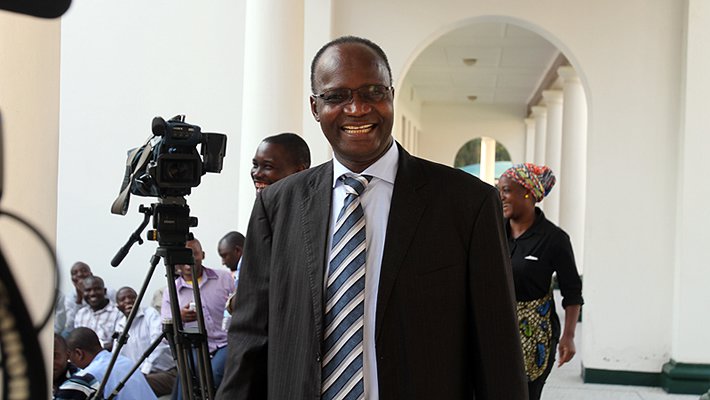By Takura Zhangazha
Zimbabwe’s Commissioner General of the Police Service, Augustine Chihuri recently told a pass out parade that he is worried about the negative impact that social media is having on peace in our society.

While not citing specific instances where and when social media has affected peace, he did not hide his dislike of the fact that even his officers are also using the same to communicate what he referred to as ‘nonsense’.
I am not sure why he chose to talk about a subject that is probably not quite within his mandate. But he has a right to his opinion. Even if it is received via the same social media platforms that he deplores.
Coincidentally, on the same day that his views were made public, Zimbabwe’s constitutional court delivered a judgment that determined criminal defamation law to be unconstitutional.
This is a development that means the state will not have the right to arrest and institute criminal charges against someone for what they publish or say about anyone else. And the immediate assumption is that this also includes things said or published via the social media platforms that Commissioner Chihuri finds to be ‘full of negative things.’
Defamation is therefore now a civil matter where people can sue each other for perceived damages to reputations without anyone ending up behind bars or in criminal courts.
But beyond Commissioner Chihuri’s opinion, which I politely disagree with, social media is of the utmost democratic importance to Zimbabweans. Even if they are not all connected to it for reasons that vary from a lack of resources to limited connectivity in rural areas or general mistrust of the platforms.
The contextual democratic significance of these platforms is to be found in the fact that they allow everyone to communicate and express themselves much faster and at less cost. They are essentially tools that enhance the democratic right all of us have to freedom of expression and access to information . Their only primary limitation is that they must not infringe on our shared right to privacy or to be used in the commitment of a crime.
While the content carried on these platforms can be acerbic, unpleasant and even defamatory that does not make them deplorable or against the national peace. Even if they are used to express an opinion different from that of the next person.
In the current political environment social media use in Zimbabwe has also come to be used as a means through which prominent politicians express their opinions. Even if it is against party directives banning the use of such platforms for members.
The recent publication by the Zimbabwe Independent of a Whatsapp conversation between the Minister of War Veterans Chris Mutsvangwa and presidential spokesperson George Charamba is a case in point.
Other examples include the use of Twitter by the Minister of Higher Education Jonathan Moyo to publish his views of some of his cabinet and government colleagues.
In these examples what social media has allowed to get into the public domain, without compelling any of the cited users to do so, is the fact that there are serious differences in the ruling Zanu PF party that border on the personal.
And also that factionalism is currency within their party especially where it relates to issues of succession. That we know this via social media does not make these same platforms a threat to peace. Far from it. In fact it is in the public interest for us to now that all is not well within the ruling party.
Furthermore, for us to know that key players in the same enjoy using social media as much as the rest of us in aide of their right to freedom of expression and access to information. Except that we may not be in the invidious position of using it to attempt to settle personal and political scores.
What is apparent is that rise in the use of social media applications in Zimbabwe is inevitable. And so too will their ability to impact on people’s political and social views as well as lives. It is an impact that will largely be positive in Zimbabwe’s information and freedom of expression starved context.
More-so for young Zimbabweans who have taken to it as ducks take to water. It has become an extension of not only how they can express their views but also how they perceive our society and what is going on in it. That is not a bad thing. It is a welcome and democratic development. And where someone differs with this view they should go ahead, tweet it, facebook it or share it via a Whatsapp group.
*Takura Zhangazha writes here in his personal capacity (takura-zhangazha.blogspot.com)






